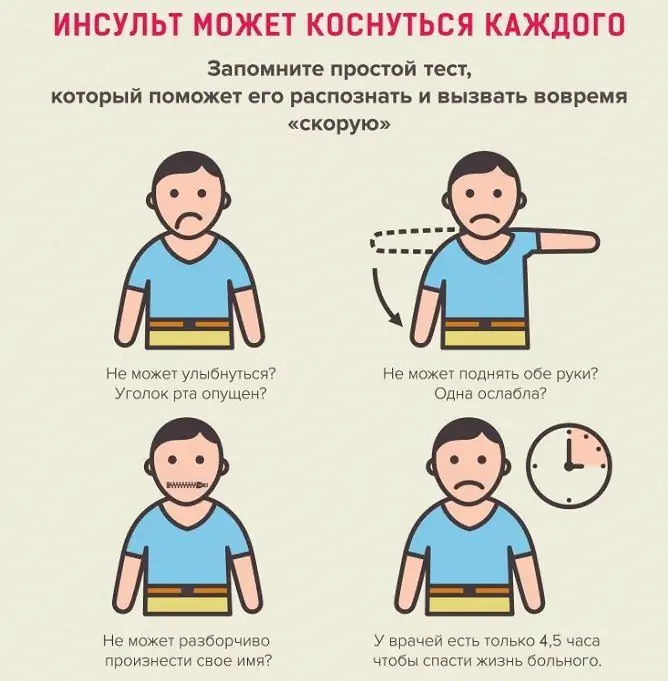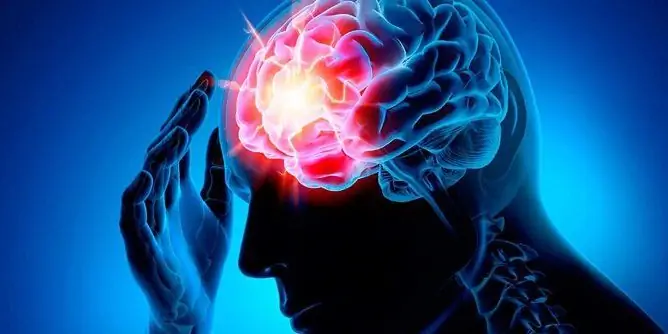- Author Rachel Wainwright wainwright@abchealthonline.com.
- Public 2023-12-15 07:39.
- Last modified 2025-11-02 20:14.
7 unexpected signs of high intelligence
Each person is gifted by nature, but everyone's abilities are different. Propensity for artistic creativity is not always accompanied by high intelligence. For example, it is known that children with mental retardation often have a talent for painting, arts and crafts, or acting.
A developed intellect not only makes it possible to engage in scientific or teaching activities, but also makes it easy to perceive new information, analyze it and successfully apply it to solve life problems. Scientists have found that people with high intelligence often have features that, at first glance, have nothing to do with the level of mental development.

Source: depositphotos.com
Increased anxiety
People with advanced intelligence tend to have high levels of anxiety. This is explained by the ability to analyze the situation and understand its consequences, which allows one to envisage negative scenarios for the development of events. Such features can play both positive and negative roles. On the one hand, a person can develop ways to solve future problems, and on the other, he experiences stress in advance, which negatively affects his health. Intellectuals often suffer from sleep disorders and depression, which develop precisely because of their ability to anticipate unpleasant events and the habit of thinking about them.

Source: depositphotos.com
Left-handedness
For most people, left-handedness seems to be more of a hindrance than a convenience. Indeed, our entire life is designed for right-handers, and left-handers are forced to adapt to it. However, a clear connection has been established between the specifics of the brain, which determines left-handedness, and the level of intelligence development. Left-handers often exhibit significant abilities in the field of physical and mathematical sciences, have a rich imagination and a large vocabulary.

Source: depositphotos.com
"Owl" mode of sleep and wakefulness
Most people live on an early morning schedule, waking up early in the morning and going to bed before midnight without any problems. Doctors consider this sleep and wakefulness routine to be correct and beneficial to health. In "owls" who fall asleep and wake up late, dysfunctions of the nervous and cardiovascular systems are more often observed. But they show higher analytical skills, are better able to concentrate, and get tired more slowly. Among top managers and people holding other responsible positions, owls prevail.

Source: depositphotos.com
Sense of humor
The ability to understand funny situations and make others laugh is usually based on the ability to decipher paradoxes. It is closely related to verbal development, vocabulary richness. People with high intelligence usually have such talents.

Source: depositphotos.com
Sloppiness
The ability to create "creative disorder" is not without reason considered a property of extraordinary people. Researchers believe that this tendency is associated with a high level of intelligence: an improperly organized environment has a disciplinary effect on the mind, activates thought processes and enhances creativity.

Source: depositphotos.com
Self-criticism
The famous saying of Socrates, the great philosopher of antiquity, "I know that I know nothing," seems joking, but it is not entirely true. The tendency to doubt the completeness of their knowledge usually manifests itself precisely in intellectuals. The more a person is informed, the more clearly he sees a wide range of questions to which he does not yet have answers. People who are limited and not too intellectually developed, on the contrary, are almost always sure that they have the ultimate truth. They do not torment themselves with "unnecessary" doubts and do not think about the incompleteness of their knowledge. The link between intelligence and self-criticism is a scientifically proven fact known as the Dunning-Kruger effect.

Source: depositphotos.com
Love for cats
As it turned out as a result of studies conducted by American scientists, in terms of the development of intelligence, "dog lovers" lose to convinced "cat lovers". The reason for this phenomenon has not yet been explained in any way. But dog lovers are much more physically active: they are easy-going and energetic, prefer to spend their free time traveling or playing sports.

Source: depositphotos.com
It is believed that learning ability, good memory and analytical mindset are to a large extent innate. If a natural gift is developed literally from infancy, it is revealed in its entirety. In this sense, the role of parents is especially great: in those families where they are actively involved with kids, without waiting for them to fall into the hands of educators and teachers: children grow up curious, quick-witted and sociable, which, as a rule, determines the degree of their subsequent professional and social consistency.
YouTube video related to the article:

Maria Kulkes Medical journalist About the author
Education: First Moscow State Medical University named after I. M. Sechenov, specialty "General Medicine".
Found a mistake in the text? Select it and press Ctrl + Enter.






